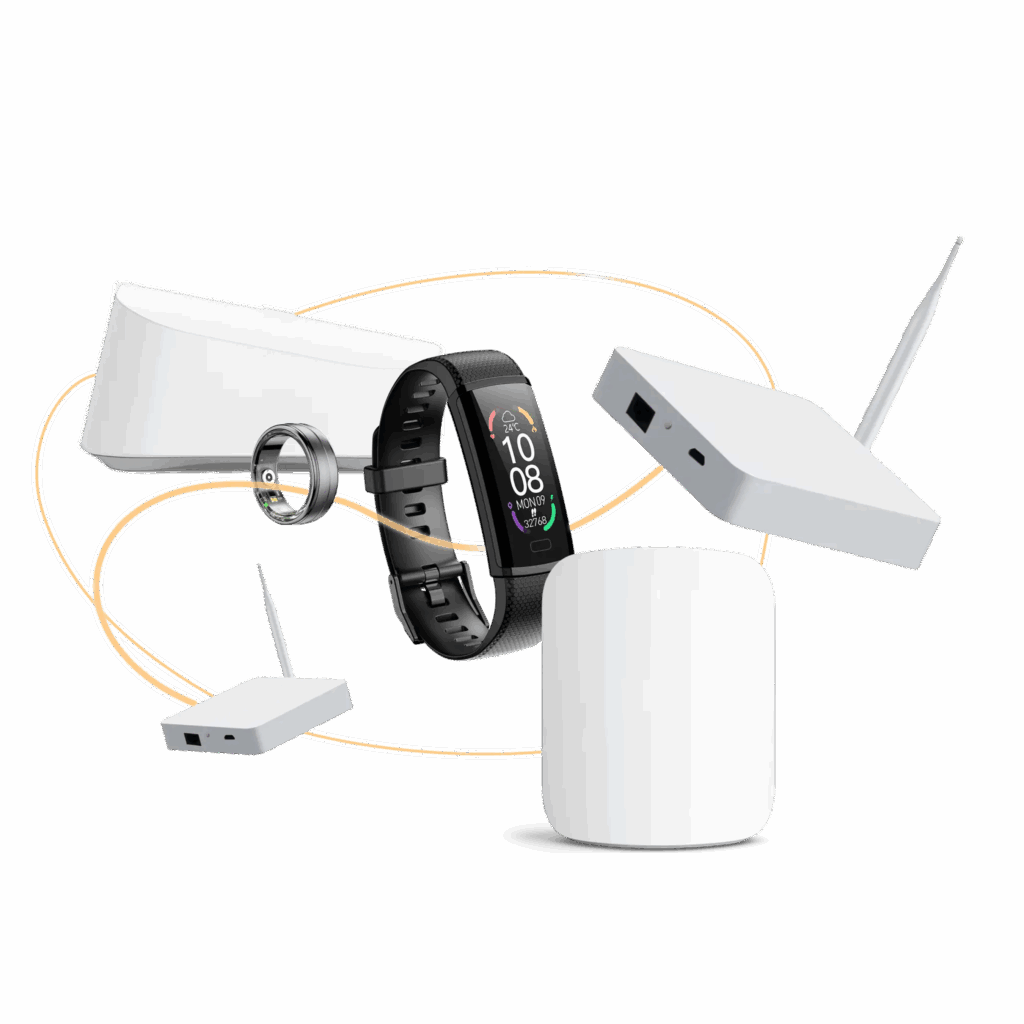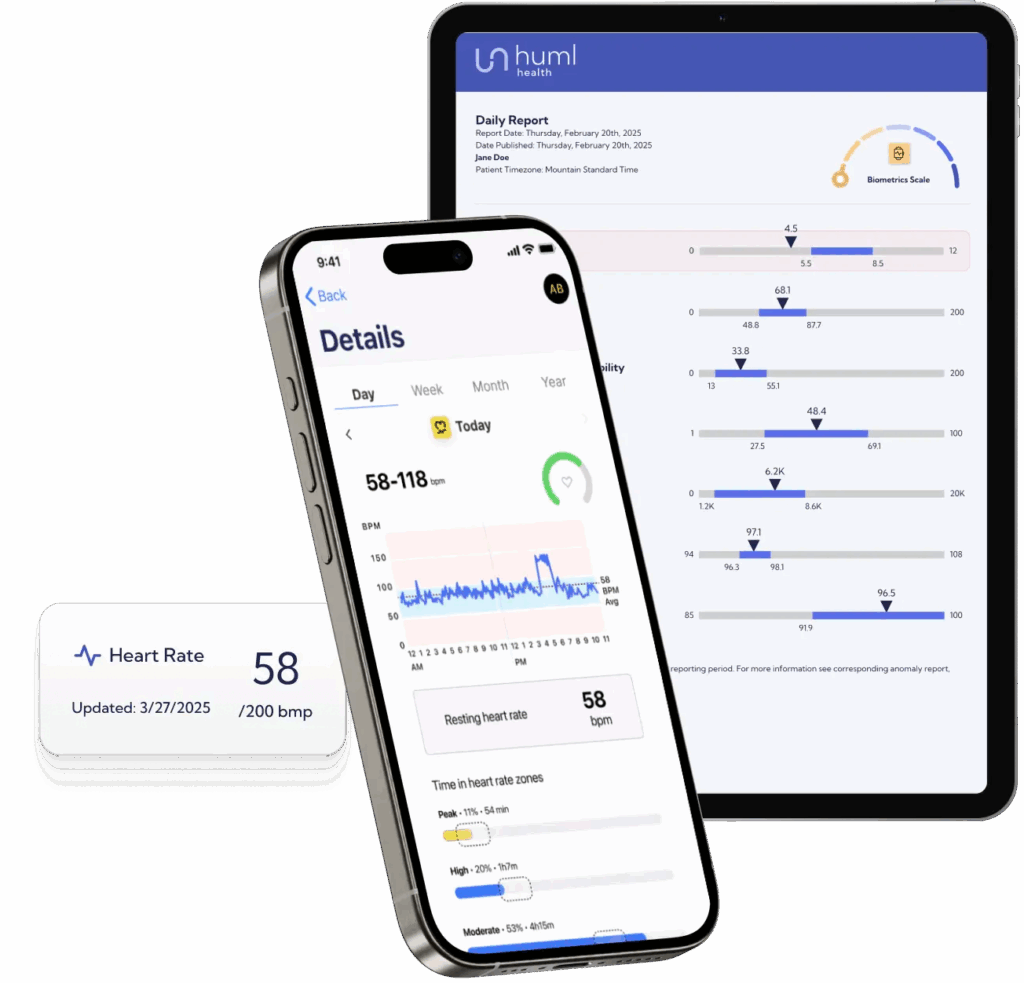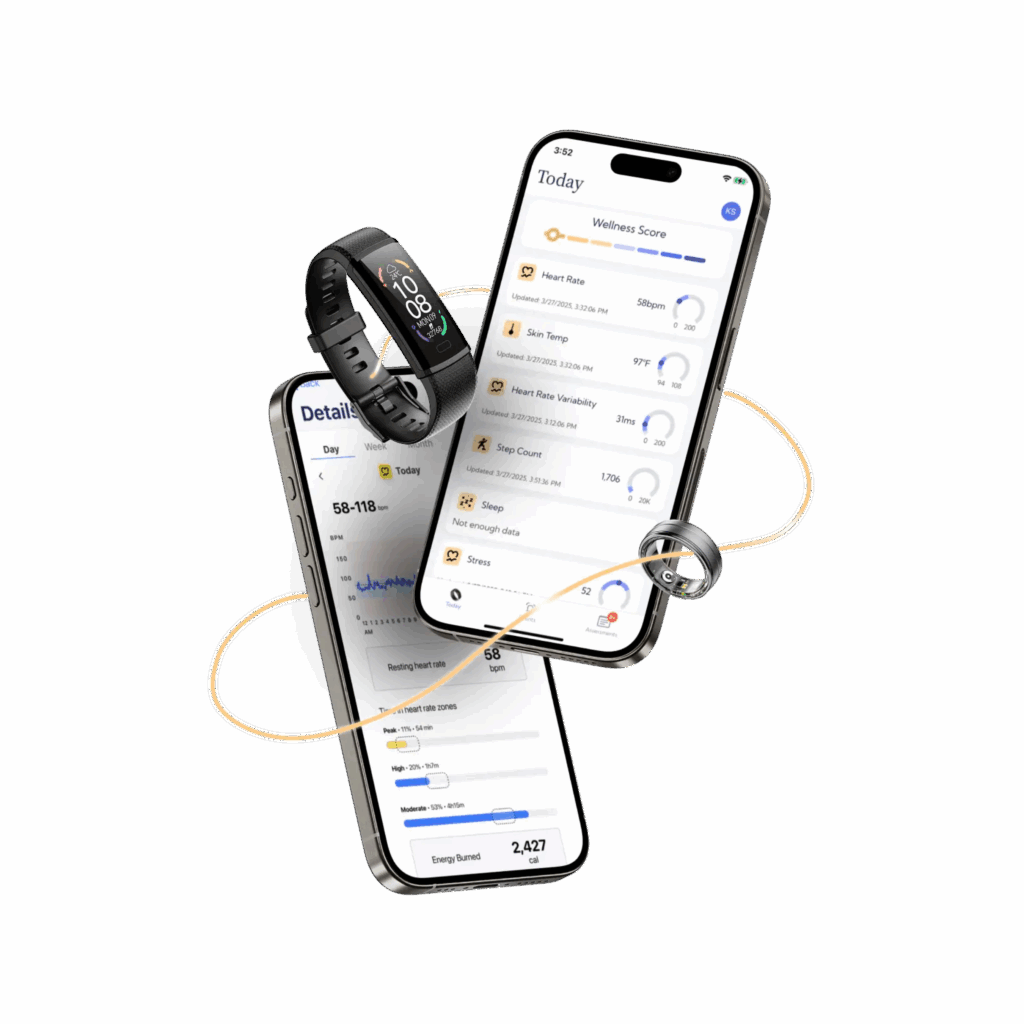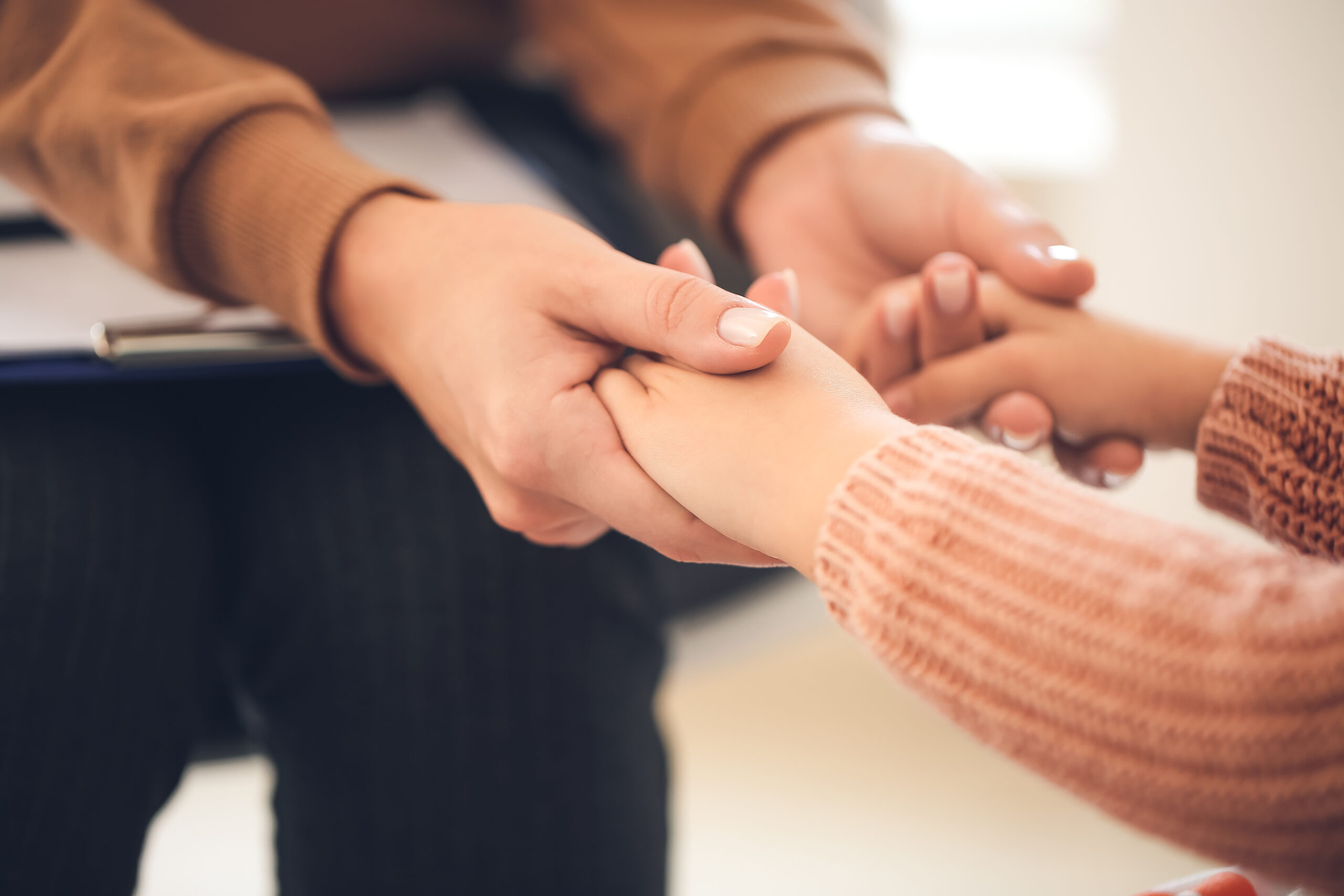A Smarter, Data-Driven Approach to Recovery
At Hygea, we recognize that addiction is a chronic and deeply complex condition. Unfortunately, many treatment models still rely on outdated methods and generalized checklists, often guided more by philosophy than by real data. We knew there had to be a better way.
That’s why we’ve adopted a system that listens to the body’s subconscious signals, tracks key markers, and adapts in real time—before, during, and after treatment. Because recovery shouldn’t stop when the program does.

Enhancing Care at Hygea with Huml Health
At Hygea, we use Huml Health to support our patients long after they leave our care. Each patient is provided with a discreet smart watch that continuously tracks key health markers like sleep, stress levels, activity, and heart rate patterns. This data is sent to a secure platform where our team can monitor changes in real-time.
The WOW Factor: Proactive Detection. If the data shows early physiological signs of stress or relapse risk—often hours or days before the patient even feels the conscious urge—our specialized clinical team is instantly alerted. This allows us to reach out to offer help before things escalate, transforming a potential crisis into a manageable moment. This ensures we stay connected, catch potential setbacks early, and give our patients the support they need to stay on track.
What Is Huml Health?
Huml (Human Understanding Markup Language): Proactive Recovery Through Biometric Data
Huml Health is a revolutionary platform and wearable technology designed specifically for the unique demands of addiction recovery and behavioral health. It moves beyond traditional aftercare by creating a continuous, data-driven link between the client and their care team.
What sets Huml apart?
- Physiological Relapse Prediction: Huml’s proprietary algorithms are tuned to detect the subtle, biological shifts—like sustained low Heart Rate Variability or deep sleep deprivation—that are proven precursors to a lapse or relapse.
- Continuous, Discreet Monitoring: The technology uses a comfortable, non-invasive smart watch worn 24/7. This ensures the data collected is constant and accurate, offering a true, objective baseline of the client’s well-being.
- The Wellness Score: The advanced AI analyzes your metrics to generate a daily Wellness Score. This provides both you and your Hygea clinician with an easy-to-understand snapshot of your current physical and emotional health, signaling when self-care is most critical.
Huml transforms aftercare from a passive check-in process into an active, informed, and preventative system of support.

How It Works: The 3-Step Lifeline
Real-Time Data Collection: Your Body's Story
Each patient receives a comfortable, discreet smart watch that’s worn 24/7. This watch tracks important health signals—like sleep quality, stress levels, physical activity, and Heart Rate Variability (HRV). The data is automatically sent to Huml’s secure platform, where it’s analyzed using advanced AI.
Sleep Quality & Patterns
Chronic sleep disruption (insomnia, fatigue) is a leading trigger in the relapse acronym HALT (Hungry, Angry, Lonely, Tired).
Heart Rate Variability (HRV)
HRV is a reliable measure of your nervous system’s balance. Low HRV often signals sustained stress, anxiety, or emotional distress before you are consciously aware of it.
Resting Heart Rate (RHR)
An elevated RHR can indicate physical stress, illness, or increased anxiety—all potential barriers to maintaining sobriety.
Activity/Movement
Tracks overall activity levels. Sudden isolation or inactivity can be a warning sign of withdrawal or depression.

AI Analysis & The Alert System
Hygea’s care team receives alerts when the data shows early signs of stress, sleep disruption, or other potential risks—often before the patient has a conscious thought of relapse. The Huml AI analyzes your metrics against your established personal, healthy baseline (created during treatment).
Baseline Deviation: If your sleep score or HRV drops significantly for consecutive days, the system recognizes a significant deviation from your recovery baseline and sends a confidential alert, acting as a digital guardian for your sobriety.
Proactive, Compassionate Intervention
This is where the human touch meets the technology. The alert allows us to step in early, check in with the patient, and offer support when it matters most. It’s a proactive way to extend care beyond our walls and help people stay on track in recovery.
- Targeted Check-In Call: A phone call from your clinician asking, “The technology indicates your stress is significantly elevated; how can we support you today?”
- Clinical Adjustment: Recommending a Mindfulness-Based Relapse Prevention (MBRP) session or a change in your routine.
- Resource Connection: Directing you to a specific resource or peer support in your local area.

Huml: A "How-To" Guide for Our Patients
Using Huml Health is simple, safe, and integrated into your treatment plan.
Huml isn’t a surveillance tool; it’s a safety net. It allows the compassionate expertise of Hygea Healthcare to travel with you.

Phase 1: Setup During Treatment
- Receive Your Watch: You will be provided with your discreet smart watch and sizing kit upon admission.
- Establish Baseline: Our clinical team will guide you through setting up the companion app (optional) and wearing the watch 24/7. Over the first few weeks, the system learns your unique, healthy baseline of sleep, stress, and activity.
- Informed Consent: We will clearly review the HIPAA-compliant data privacy agreement and answer all questions regarding how your data is used—only for confidential clinical intervention.
Phase 2: Use in Daily Life (After Discharge)
- Wear It: The only requirement is to keep the watch charged and wear it daily. It’s durable, comfortable, and water-resistant.
- Live Your Life: Go to work, attend meetings, sleep, and exercise. The watch tracks the data automatically; no manual input is needed.
- Respond to Outreach: If the Hygea team reaches out following an alert, be open to the conversation. This means your system detected a potential risk, and your care team is leveraging the technology to provide immediate support.
Why It Matters: Lasting Outcomes
Recovery doesn’t stop when treatment ends—and neither does our support. With Huml Health, we’re able to stay connected with our patients during one of the most critical times: life after discharge.
By tracking subtle physiological signs in real time, we can catch early warning signs before a conscious crisis happens. This means:
- Fewer relapses: Catching risks early prevents escalation.
- Faster, personalized interventions: Support is delivered precisely when it’s needed most.
- Overall better long-term outcomes: Sustained sobriety is within reach.
For our patients, it means knowing that the most advanced technology is working silently to keep them safe, and that Hygea still has their back—even after they leave our doors. It’s a smarter, more compassionate way to support lasting recovery.



